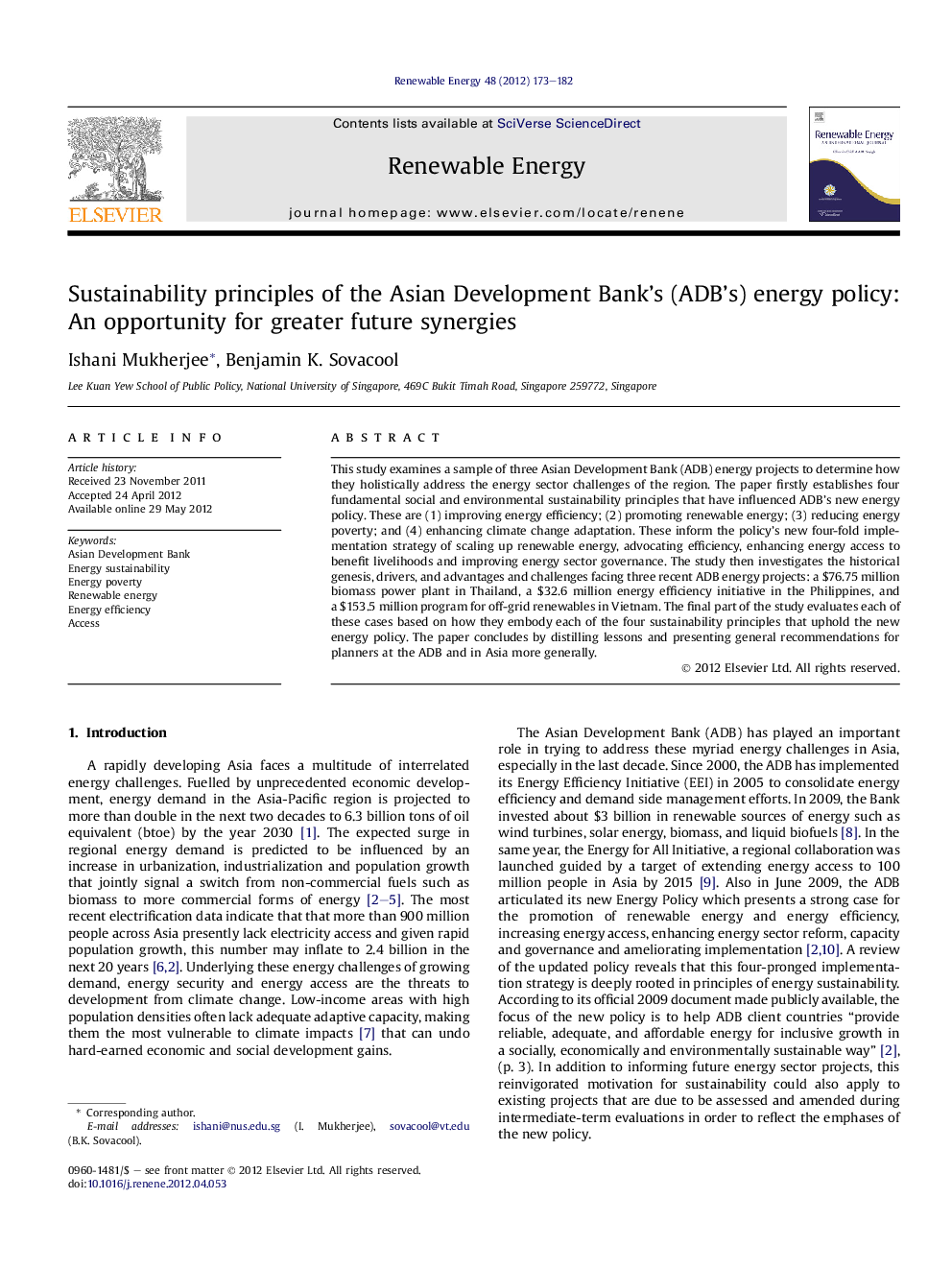| Article ID | Journal | Published Year | Pages | File Type |
|---|---|---|---|---|
| 300869 | Renewable Energy | 2012 | 10 Pages |
This study examines a sample of three Asian Development Bank (ADB) energy projects to determine how they holistically address the energy sector challenges of the region. The paper firstly establishes four fundamental social and environmental sustainability principles that have influenced ADB's new energy policy. These are (1) improving energy efficiency; (2) promoting renewable energy; (3) reducing energy poverty; and (4) enhancing climate change adaptation. These inform the policy's new four-fold implementation strategy of scaling up renewable energy, advocating efficiency, enhancing energy access to benefit livelihoods and improving energy sector governance. The study then investigates the historical genesis, drivers, and advantages and challenges facing three recent ADB energy projects: a $76.75 million biomass power plant in Thailand, a $32.6 million energy efficiency initiative in the Philippines, and a $153.5 million program for off-grid renewables in Vietnam. The final part of the study evaluates each of these cases based on how they embody each of the four sustainability principles that uphold the new energy policy. The paper concludes by distilling lessons and presenting general recommendations for planners at the ADB and in Asia more generally.
► New ADB energy policy is grounded in sustainability principles. ► Renewable energy, efficiency, energy poverty, climate change are key concerns. ► Analysis of three ADB projects show ways of achieving sustainability synergies.
